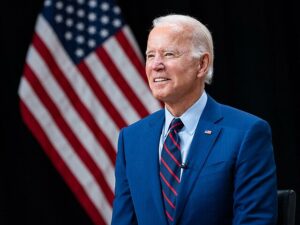Canadians can take pride in a number of national achievements, not all of which occur on ice rinks. But protecting the fundamental freedoms of expression and religion isn’t chief among them.
Enter same-sex marriage. Introduced by the Canadian courts a decade ago, same-sex marriage has become, for many, a cherished symbol of tolerance, inclusion, and acceptance. So much so that many have a difficult time seeing any reason to tolerate continued dissent. According to this line of thinking, the wellbeing of gays and lesbians can only be secured in a milieu that now forbids even raising the question of whether there might be some drawbacks for a society that has abandoned the conjugal conception of marriage.
So what is to be done about religious communities that simply cannot give up on the idea that communities are best served by a conception of marriage characterized by a lifelong, exclusive commitment between one man and one woman? What are the terms for their continued participation in public life? Must they renounce their understanding of marriage and human sexuality? Or at least, stop acting as though it matters?
The legal question has not yet been answered definitively, but for those who believe in the importance of religious communities—or who believe in the importance of sub-political communities generally—the outlook is not good. The Canadian human rights commissions retain extremely effective tools to deal with “hate speech.” And you might well be surprised at what is included within that category. In fact, you would have to be. Saskatchewan Human Rights Commission v. Whatcott, the most recent decision on point from the Supreme Court of Canada—eighteen months in the making—is so utterly muddled that it is impossible to guess. Although some room remains to express opinions on the morality of sexual acts, the decision’s qualification—that one’s comments not be restricted to “persons of a certain sexual orientation”—makes much talk about sexual activity hazardous. To what extent is it still permissible to address the morality of any sexual practice that is central to a person’s self-identity? The holding potentially bans any critical assessment of sexual practices from heterosexual BDSM to incest to polyamorist group sex.
Start your day with Public Discourse
Sign up and get our daily essays sent straight to your inbox.But enforcing orthodoxy on same-sex marriage is not solely entrusted to the human rights commissions. It has fanned out throughout Canadian society, its norms having been internalized by all leading institutions, public and private. The result is that religious communities (and their individual members) who identify with the conjugal conception of marriage face significant barriers to participation in public life. (I’ve discussed some of the consequences of Canada’s redefinition of marriage before at Public Discourse.)
The most recent case in point is a small liberal arts university located just outside of Vancouver. Trinity Western University is one of Canada’s few private universities, and it proposes to house Canada’s first and only private law school. TWU, like many other religious educational institutions, fosters a distinctively religious community by requiring its students to abide by a “community covenant agreement.” The agreement covers many different behaviors and proscribes, for example, the use of alcohol and pornography on campus.
But what has alarmed the Canadian legal education establishment is the requirement that students agree to abstain “from sexual intimacy that violates the sacredness of marriage between a man and a woman.” The Canadian Council of Law Deans, comprised of all the deans of Canada’s law schools, has spearheaded a public campaign against TWU through a letter to the Federation of Canadian Law Societies, the body that makes accreditation decisions.
The federation initially ruled that such concerns were outside its remit—its terms of reference are limited to assessing the technical quality of the proposed school. But as letters piled up and pressure mounted, it decided to make an exception in this case.
The precise ground of the law deans’ objection is not clear. It could be a pragmatic concern: that TWU-educated students would be unfit to practice law because of their inculcation into a “discriminatory” ethos. On this reading, the deans would be concerned that TWU law grads—because they have internalized the norms of conjugal marriage—would be unable as lawyers to act effectively for gay or lesbian clients. Or that they might be unable to work effectively with gay or lesbian colleagues.
The problem with the pragmatic argument is that it runs counter to all available evidence. One might even suggest that it rests on negative stereotyping of Christian students.
Here is the problem: over the past forty years, the deans have welcomed countless graduates of TWU’s undergraduate programs into their own law schools. They have watched them graduate to distinguished careers at the bar. There have been no complaints about the unwillingness or inability of these lawyers to provide legal services to gay or lesbian clients. How do the deans account for this? Are they really claiming that public law school is the balm that cures the hateful propensities of these students?
And if the TWU law graduates will pose, by virtue of their beliefs about marriage, a threat to society, what about the deans’ other students—what about their faculty—who similarly believe that no public goods were served by abandoning the conjugal conception of marriage?
Logically, these individuals should be refused admission to the bar, expelled, or fired, as the case may be, unless they would be willing to endorse the proposition that same-sex marriage is indistinguishable from the conjugal conception of marriage. The deans’ campaign against TWU’s community covenant logically ends, ironically, in the enforcement of their own community covenant.
But perhaps the objection is not pragmatic (and empirically falsifiable) but principled. That is, it’s about the institutional message that TWU’s covenant sends: that there are communities of persons among us who denounce discrimination, yet are unable to agree with everyone’s self-understandings.
And now we are on to some fruitful grounds for reflection. The message being sent by the deans is that there is nothing of value in these religious communities and religious institutions; that there is nothing lost if prospective students are allowed entry into such communities only on terms that will hollow them out and destroy their self-constituting character.
The deans’ inability to see that the value of religious communities exceeds the value of homogeneity of views on same-sex marriage should be Exhibit A in the case for fostering some genuine diversity in Canadian legal education. And the Canadian experience as a whole should alert Americans to the danger of allowing the endorsement of same-sex marriage to become a prerequisite to participation in public life.












